Prime ministers at play: the rules of summer holidays for our leaders
As Rishi Sunak flees to sunny Santa Monica to escape the cold winds of the cost of living crisis, Sean O’Grady looks at how PMs from Harold Wilson to David Cameron ‘chillaxed’ – and reveals the tricky diplomacy of getting away on your hols while still appearing to be running the country

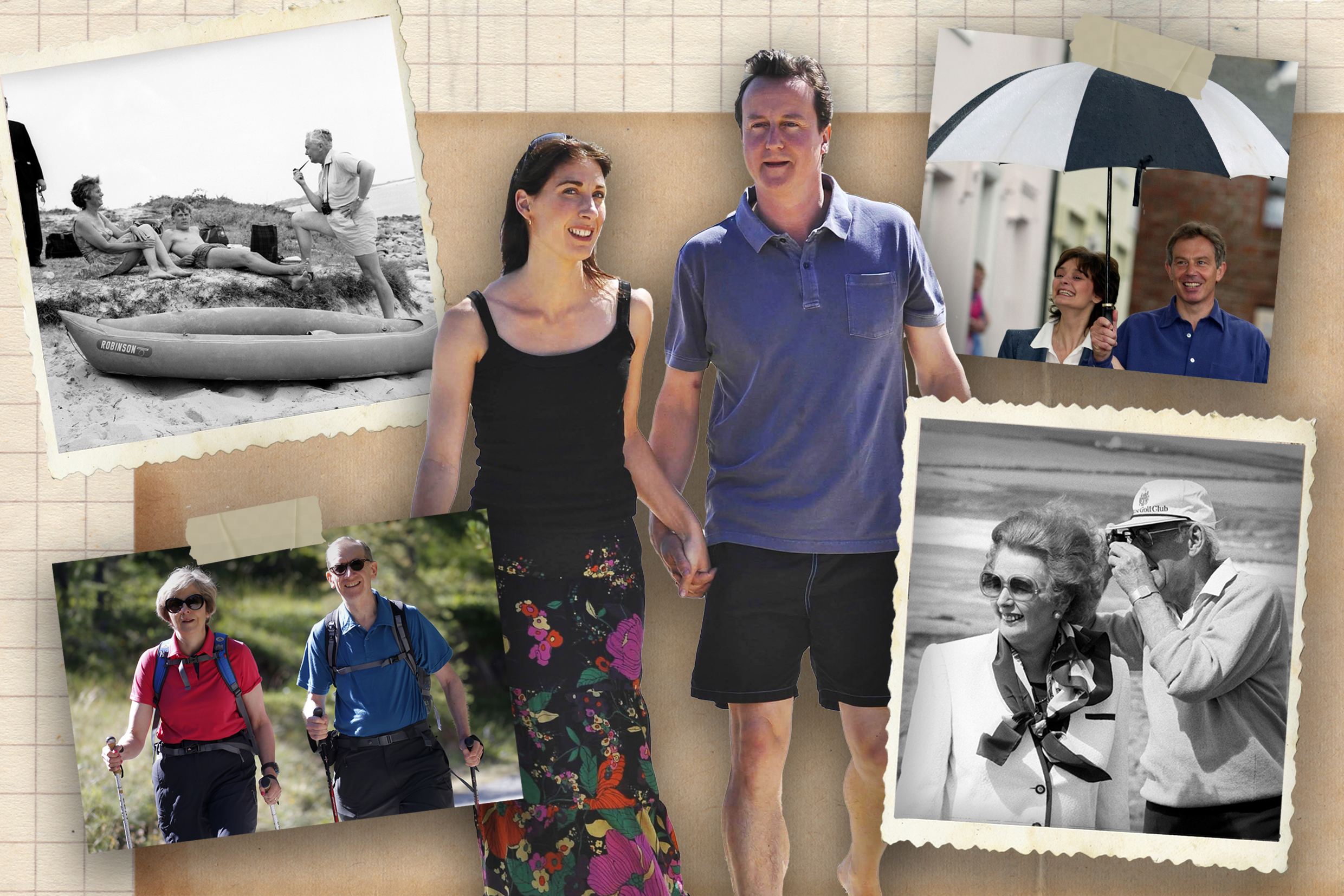
So, you’re prime minister, in charge of Britain’s independent nuclear deterrent. You’re in control of a permanent seat on the Security Council of the United Nations. The sixth largest economy in the world and the best military are at your disposal. You can declare war, make peace, end careers, inspire your people, craft your own history. Now, though, comes the most awesome, most intricate, most stressful challenge of all: where to go for your hols?
Aside from the grace and favour grandeur of Chequers, which is a retreat rather than an escape, a prime minister is usually in a no-win situation – and acutely so, even by the usual standards of political leadership. It requires the finest of judgments, balancing personal desires, family demands, the needs of the country and, most important of all, what the media and the voters expect of you. Such contradictory forces can easily lead you into acute embarrassment. And sometimes your time away from No 10 can lead to calamitous delusions. So perhaps in this Lonely Planet guide for premier breaks, we should begin with some “don’ts”.
One thing you should obviously try to avoid is being perceived to be rubbing the electorate’s nose in its sufferings while you jet off and enjoy the sunshine. To take one great historic example, when James Callaghan returned from an international summit on the Caribbean island of Guadeloupe in early 1979 to a freezing nation paralysed by strikes in the “winter of discontent”, he attempted to strike a statesmanlike pose when confronted by reporters at Heathrow.
Tanned and relaxed, and already seen on the newsreels dining short-sleeved and al fresco with Jimmy Carter, Helmut Schmidt and the other masters of the universe, Jim told his miserable people that he didn’t consider that the rest of the world would share the view that Britain was in a state of mounting chaos.
For his troubles, the front page of the Sun newspaper the next day featured the famous headline “Chaos? What Chaos?”, and before the summer was out so was Callaghan – and Labour, for the ensuing 18 years. The summit wasn’t a winter break but it looked like one, and it didn’t feel right.
Rishi Sunak’s announcement that he’s headed to his $7m penthouse apartment in California for the duration has gone down better than Callaghan’s complacency, and better than might be expected in the middle of this cost of living crisis. It was indeed rather telling that he chose to go to his luxury pad on the sunny West Coast rather than his mansion in his North Yorkshire constituency, which is apparently so little used that a gang of Greenpeace protesters could occupy the premises without anyone noticing until they covered it in a giant symbolic “oily-black” drape.
The irony here, of course, is that the spectacle never confronted the Sunaks, sequestered as they are over in the Pacific. That is their holiday home, but may well be for the family their “real home” and the one they feel drawn to despite the potential political downside.
Unlike drizzly, under-insulated Britain, the Sunak’s American base boasts, according to the original real estate agent’s blurb: “large private outdoor terraces unlike anything ever seen before on Ocean Avenue”; “the epitome of urban Santa Monica beach living”; and “the latest equipment for those looking to improve their cardiovascular or muscular endurance” with a “pet spa” where residents’ “furry companions can get pampered”.
The Sunaks’ kitchen features “polished Sea Pearl quartzite counters”. The showers have glass walls designed with a tortoise-shell mosaic pattern, and – get this – “in the powder rooms, the countertops are deluxe marble and the vanity is custom-designed”. There, Rishi will “wake up to the sound of waves crashing against the shore” – rather than Steve Bray and his megaphone bellowing around Whitehall.
Obviously, we’re all against the politics of envy but, still, it is remarkable how little resentment Sunak’s stunning symbolic act of societal inequality has provoked. It may just be that we already know full well that Sunak is so loaded that he has no idea of the problems facing the average British millionaire, let alone the petit bourgeoisie or, still less, the just-about-managing.
The indulgence towards Sunak might also be connected to the fact that he is at least paying his own way over there, and has no need to demean himself or open himself up to conflicts of interest and parliamentary scrutiny by going on the scrounge to rich acquaintances and benefactors.
Which brings us neatly to Boris Johnson and Tony Blair, and our second rule: don’t ask others to pay for your fun. The two most charismatic politicians since the fall of Margaret Thatcher in 1990 have in common a gift for campaigning, a natural talent for communication and an uneasy relationship with the truth. They also share a taste for a freebie, and none more tempting than an exotic holiday. Blair’s usual hosts were from showbiz – he was mesmerised by wealth and celebrity more than any of his counterparts – and unlikely chums Sir Cliff Richard and Sir Richard Branson were all too happy to put him, Cherie, and the kids up buckshee.
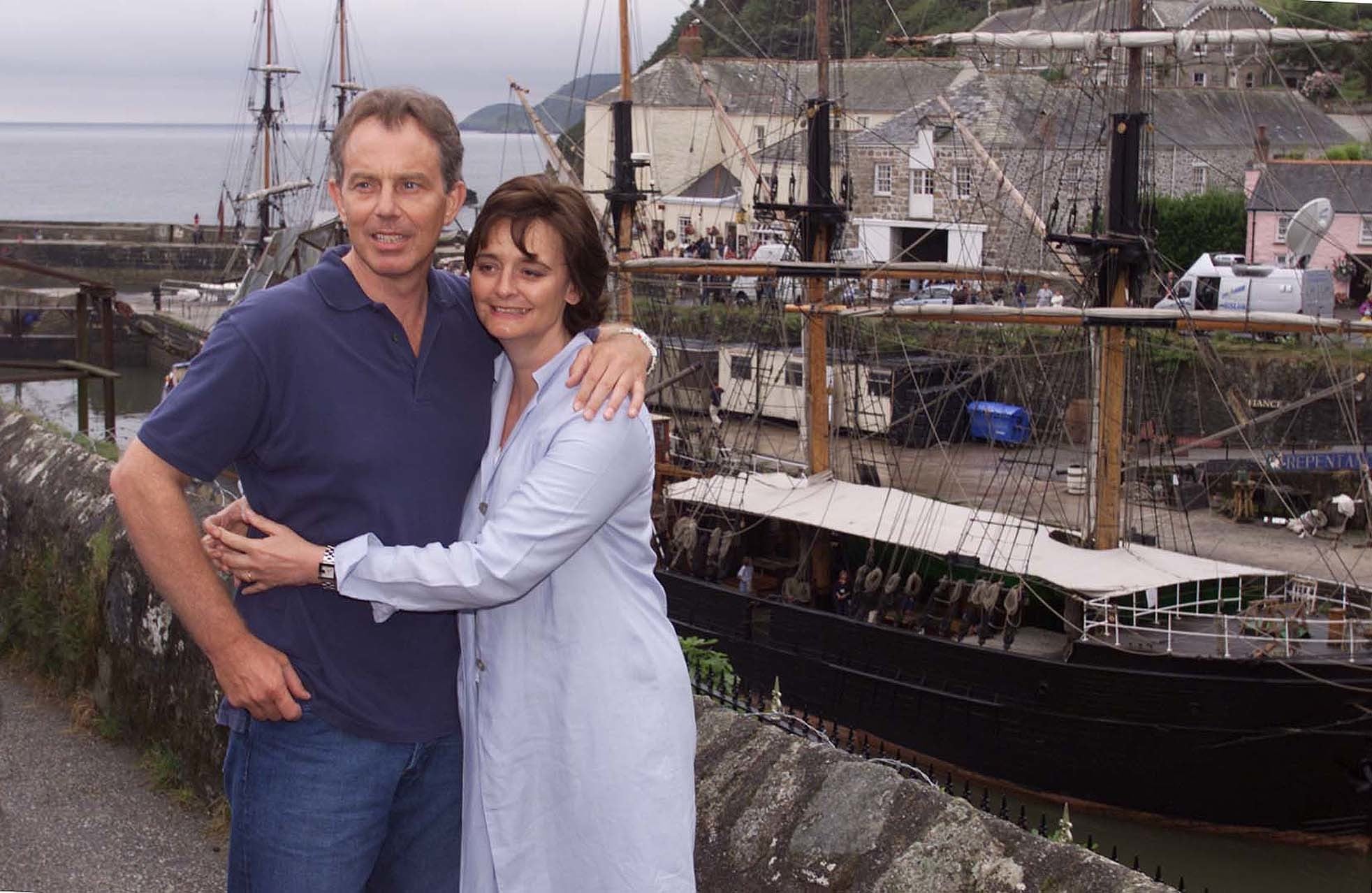
Blair wasn’t fussy, mind. Long before Johnson was sanctioned by the parliamentary watchdog for failing properly to declare a free holiday in Mustique worth at least £15,000 facilitated by Tory donor David Ross, Blair too was told off for taking extensive hospitality from an unorthodox source – in his case the Egyptian state. Post-Christmas 2001, the Blairs could be found taking things easy at the New Tower Hotel in Sharm-el-Sheikh. Blair declared that he and his family spent six nights as guests of the Egyptian government at two private villas at the hotel over the new year period.
The Blairs paid for their own flights from Britain to Cairo, but the Egyptian government paid for their flights from Cairo to Sharm-el-Sheikh. Blair had already taken some abuse in 1999 for a break in Tuscany, care of the Italian government, and this time offered to make a charitable donation, but it was not sufficient to assuage his enemies. The puritanical Lib Dem MP Norman Baker declared: “The prime minister is paid enough not to have to accept hospitality. It cheapens the office. It would have been better if he had refused to offer and paid his own way, rather than have allowed this convoluted arrangement."
Plainly Baker didn’t understand the Blair mindset, and neither did many others. Though his freeloading never did Blair serious harm, it left a bit of a stain on his reputation that need never have been there.
By contrast, Boris Johnson’s reputation is so sullied that emptying the collected contents of his children’s nappies on it could scarcely make it more besmirched than it already is.
The other difference with Blair is that Johnson went even further out of his way to avoid being transparent. But to be fair, sometimes, as with Zac Goldsmith, a friend of both Johnson and his wife, the personal, the political and the transactional could be conveniently blurred in Johnson’s mercurial mind, especially while taking time out at the grand Goldsmith villa in the mountains above Marbella.
On the one recorded occasion when Johnson paid to take Carrie and his then youngest child Wilf on holiday, he did it on the cheap – renting a cottage in Scotland and pitching a tent for a bit of outdoors air (to be accurate, Carrie paid for the tent).
This brings us to our third rule of prime ministerial vacationing – don’t go to a hostile state. In late 2019, the freshly appointed prime minister and minister for the Union maybe considered a visit North of the Border would warm Anglo-Scottish relations; or possibly he was on another of his wind-ups.
In any case, when word got around and the secret location was revealed, Johnson was mobbed by angry Scots and rushed out by the secret service. Not, though, before he had annoyed a local sheep farmer, Kenny Cameron. Cameron told the press: “Mr Johnson is meant to be leading the country and yet he is not setting a great example. Usually, if people want to go inside a fenced area, they ask for permission first, but I was not asked at all. It is only polite to ask. He could have put up his tent in the garden of the cottage and there would have been no problem – but he didn’t do that.”
Of course, he didn’t.
Fourth lesson: don’t do anything rash. The painful memories of Theresa May’s doomed snap election in the spring of 2017 are even now still too raw for the episode to be dwelt upon, but of all the ideas that have been dreamed up on a walking holiday in Snowdonia (paid for by herself, in case of doubt) this has to be the most momentous. Before she set off with devoted hubby Philip on a journey that would lose her majority and destroy her premiership – literally ending it in tears – she cheerfully remarked that “walking in Wales is an opportunity to get out and about ... to see the scenery, clear your mind and your thinking”.
With Tory ratings far ahead of Jeremy Corbyn’s divided Labour Party in the polls, May resolved to renege on her previous position and seek a mandate of her own – and she was widely expected to score a landslide.
We all know what happened next.
It was odd, because the usual criticism of May is that her innate conscientiousness meant she hadn’t the time to think more widely and freely, as she herself suggested; and a break would allow her to do some strategic thinking with her most trusted adviser and life partner. Turns out that she’d have been better off relieving her stress by running through the nearest field with a ripening arable crop ready for harvest.
The uncrowned master of the art he himself named “chillaxing”, David Cameron has bequeathed to us the next rule; if there’s trouble, go back home. Now. Obvious as it might be, too many politicians on their holidays succumb to the temptation to believe things just can’t as bad as they seem. The latest victim of such self-delusion, Dominic Raab, soon lost the foreign office when he refused to go back to work in London when it was clear the Taliban were about to take Kabul and expel the British and excite their Afghan allies.
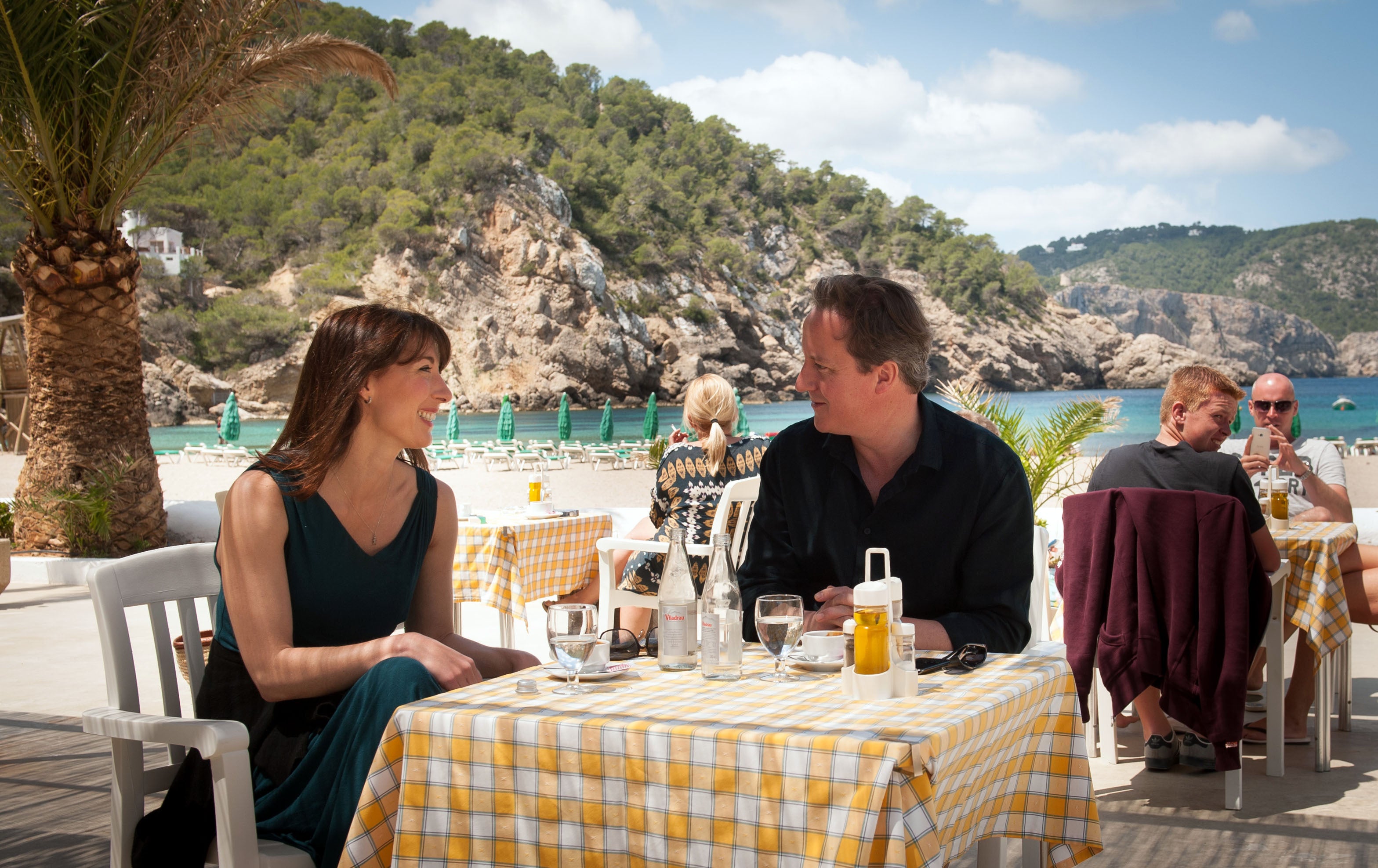
Contrast that with Cameron. The PM didn’t make the same mistake and the RAF got him home from Italy just about as quickly as was practicable: “It didn’t take me long in the job to realise that ‘If in doubt, get back’ was the right motto. You are always better overreacting than underreacting to a crisis. This is not just about appearances: there is a moment when a situation is worsening and you know your intervention can be decisive.”
A prime ministerial leisure time diversion that seems to have fallen out of favour is the hobby. Gordon Brown, workaholic and restless, used to opt to hang out with other liberal intellectuals on the New England coast before No 10, the global financial crisis and incipient recession forced him to stay in the UK, where his holidays were routinely interrupted by crisis and leadership speculation. There was a man who always seemed unhappy at work, rest and play.
Edward Heath, another of the stranger personalities to occupy No 10, took up sailing for health and happiness, and kept it going even as he was trying to run the country. But, like Brown, he took life very seriously, and the yachting wasn’t some excuse for some lols messing about on the water, but yet another invitation to compete. As with picking a cabinet, Heath insisted on gathering around himself what he believed to be the strongest and most coherent team available. There were five Morning Cloud boats and he and his crew won the Sydney to Hobart race in 1969, when he was leader of the opposition; and, when he was prime minister, the Admiral’s Cup – when he captained the British team.
Others followed less exacting regimes. Winston Churchill travelled across Europe and North Africa painting, while Neville Chamberlain and Alec Douglas-Home spent their time in the countryside angling, at which both were expert. There’s also a charming British Pathé newsreel from a century ago of David Lloyd George planting spuds on his vegetable patch at home in Criccieth, Wales. Today’s political class seem to lack that kind of hinterland and link with nature. A pity.
The key to being a successful prime ministerial vacationer seems to be above all consistency. Margret Thatcher was a case in point, although, ironically, because she hated taking holidays so much she often broke off early to get back to work. Indeed, she didn’t even enjoy sleep very much, getting away with four or five hours a night, reputedly.
John Major, so unfairly maligned, was a rarity in that his holidaymaking never made the headlines, whereas everything else he tried to do was mercilessly attacked. As creatures of habit, Major and his wife, Norma, stayed every year with his close ally and friend, Tristan Garel-Jones, and his Spanish wife at their villa west of Madrid. So often have the Majors turned up for some R&R in Candeleda since 1989 that the council a few years ago named a street after him – Avenida de John Major or Avenida John Major – John Major Avenue. It isn’t true that all the houses are painted grey.
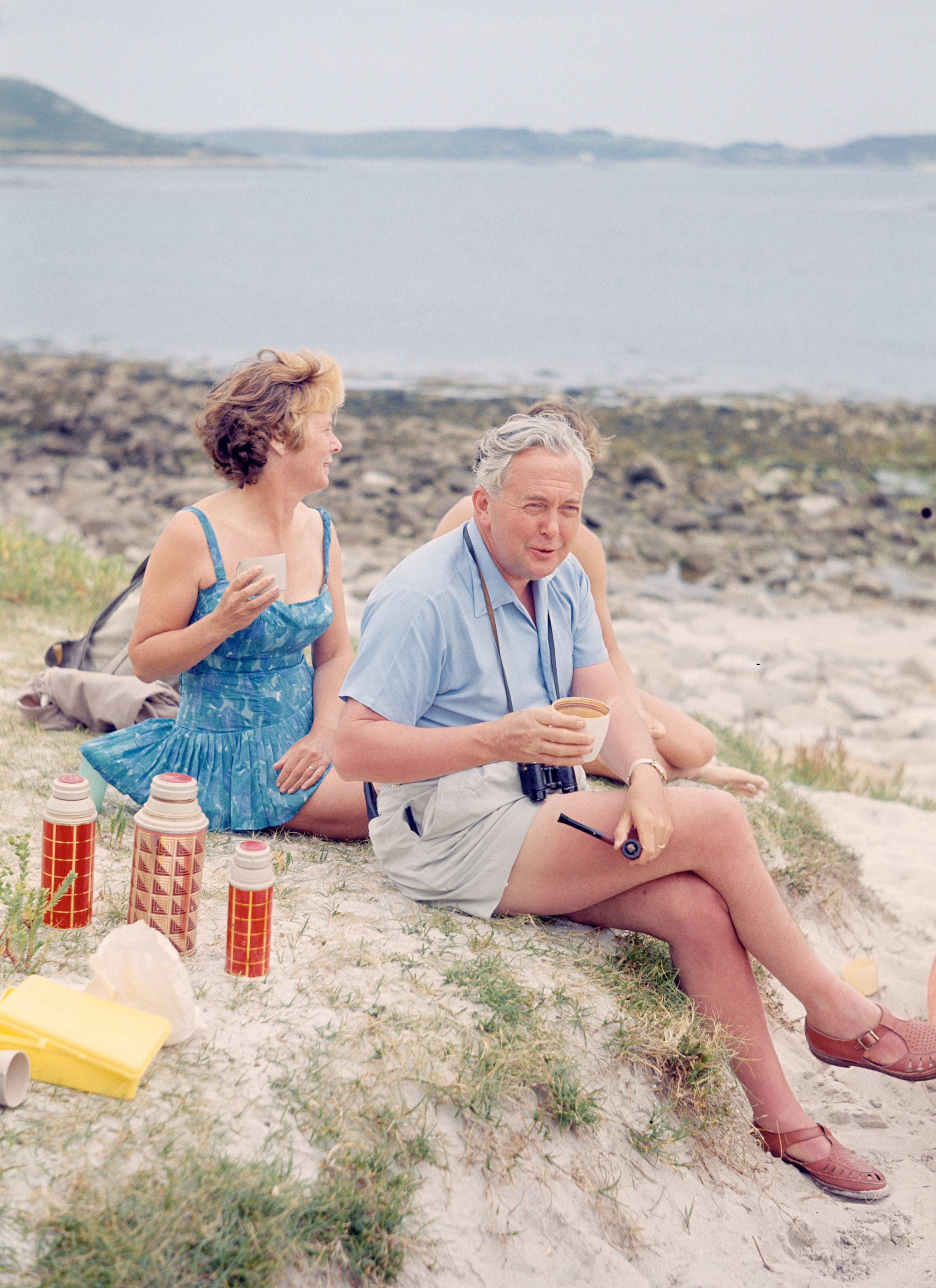
In perspective, the happiest of the incumbents in No 10, the one most at ease in his own skin was Harold Wilson, and it may not be a coincidence that his famous holiday home in the Scillies was the one that he and his wife, Mary, actually treated as “home” full stop. He bought a patch of land on St Mary’s in 1959 and built a three-bedroom prefab bungalow on it. It was described by one biographer as “not pretty: squat, stone-ribbed, with no concessions to its setting, it is an austere reminder of an undistinguished episode in functional British architecture”.
The society magazine Tatler called it “hideous”, but Wilson was content with it, and to be seen as middle class and to stand in stark contrast to the big baronial halls, grouse moors and spacious regency houses that his Tory opponents and predecessors, Sir Anthony Eden, Harold Macmillan (son in law of the Duke of Devonshire) and the 14th Earl of Home used to languish in in their own free time. As one sympathetic observer wrote, “Wilson would not have wanted anything that detracted from his image as a plain, ordinary, accessible man. The Scillies chimed perfectly with his ‘middle England’ image”.
At their perennial holiday home, Harold and Mary shopped at the Co-Op, enjoyed suppers at the Mermaid pub, and mixed easily with their Scillonian neighbours. He played golf on the nearby course, and once almost drowned when he slipped off his dinghy in an isolated corner of St Mary’s, fished out of the water by some holidaymakers from Rugby (his spin doctors blamed Wilson’s blameless pet Labrador Paddy for the mishap). Mrs Wilson became president of the Lifeboat Ladies’ Guild.
Basically, they regarded it as their true home, modest and unprepossessing as it was and is (it was sold on by the family as late as 2019, valued at £425,000). The Wilsons named the place Lowenva, which means “happy home” in Cornish, and it was apt.
It is a world away from the Sunak’s vast base in California, with its polished Sea Pearl quartzite counters, custom-built oak cabinetry with polished chrome hardware and stainless steel Thermador appliances, although the Sunak’s “holiday home” also seems to be their own space, albeit halfway round the world.
But that seems to be their more permanent prospective residence, for all manner of reasons. No doubt the Sunaks won’t be too upset if they soon find they have much more time to spend in their own happy home.


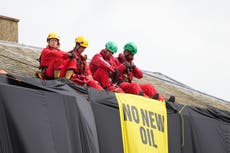



Join our commenting forum
Join thought-provoking conversations, follow other Independent readers and see their replies
Comments